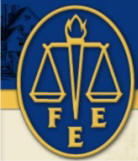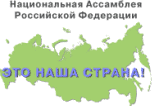|









 Áëîã Àíäðåÿ Èëëàðèîíîâà Áëîã Àíäðåÿ Èëëàðèîíîâà





 








ãîðèçîíòû ïðîìûøëåííîé
ïîëèòèêè
ÈÐÈÑÝÍ
|
ÊÈÎÒÑÊÈÉ ÏÐÎÒÎÊÎË
British Met Office agrees with IEA conclusions
The British Met Office has agreed with some of the main conclusions reached by the Institute of Economic Analysis’ report, «How Warming Is Being Made: The Case of Russia», published on December 16, 2009.
In a statement e-mailed to the Investor’s Business Daily, the Hadley Centre, the U.K.'s top climate research outfit, said: «We do not choose these stations… The World Meteorological Organisation chooses the set of stations designated as essential climate stations that have been released by the Met Office.»
Dave Britton, spokesman for the Met Office, which includes the Hadley Centre, said: «If we use every single piece of temperature data that is available then we would probably suggest that the (Russian) warming would actually be greater... They don't use all data, he explains, because they must be quality-controlled, taken from reliable sources and consistent with other temperature data sets.»
By making this statement the British Met Office has agreed with some of the main conclusions reached by the IEA’s report, namely:
1. The Met Office’s Hadley Centre and Climate Research Unit of the University of East Anglia used not all, but only part, of the climatic data available at the moment (from only 25% of all currently working Russian meteorological stations).
2. The selected sample of climatic data is not representative, since the results it produces probably do not coincide with the results from the full database.
In other words, the British Met Office’s statements are consistent with some of the main conclusions of the IEA’s report: the use of data by its researchers in the calculations of global temperature do not meet basic scientific standards and therefore the resulting temperature measure – an increase in the global temperature by 0,74°Ñ – turns out to be unreliable. In order to assess the real rate of temperature change during the last century it is necessary to recalculate all global temperature data according to the corrected methodology.
Âåðíóòüñÿ ê ñïèñêó
|

